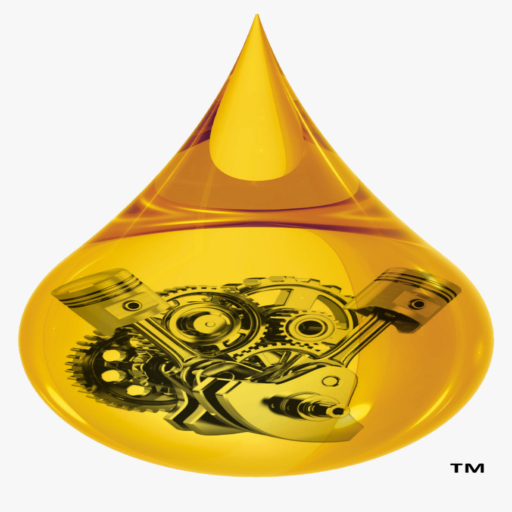Toyota Camry 2013 Oil Type: For the health And performance of your Toyota Camry 2013, it’s essential to keep its engine properly greased. You should change your Camry’s oil and filter regularly to ensure its long-term health.
This article covers everything you need to know About changing your oil in a 2013 Toyota Camry.
Here’s what I’ll be covering in a nutshell:
- Oil: 5W-20 is the recommended oil for the 2013 Toyota Camry. Synthetic oils perform better in extreme temperatures than conventional oils.
- Oil tank capacity: A 2013 Toyota Camry’s oil tank capacity is 4.5 quarts. Make sure not to overfill the oil container, As this may damage the engine.
- Filter: Toyota recommends Toyota’s 90915-YZZF1 As An oil filter for the 2013 Camry. This oil filter has been designed to trap debris and dirt. It will keep your engine lubricated.
- Cost for oil change: Depending on where you get it done, the cost of An oil change in A Toyota Camry from 2013 can vary. A typical oil change will cost between $30-$50.

Toyota Camry 2013 Oil Type
The type of oil recommended for the 2013 Toyota Camry is 0W-20 synthetic oil. This is the kind of oil Toyota recommends for Maximum energy efficiency And performance.
But, it’s best to check the owner’s manual of your particular vehicle model to determine the recommended oil And Any other requirements for maintenance.
Toyota Camry 2013 Oil Capacity
The capacity of oil of the 2013 Toyota Camry with A 4-cylinder engine is 4.5 4 quarts (4.3 milliliters) And for V6 engines is 6.4 Quarters (6.1 Liters).
The oil tank in your engine must not be overfilled As this might cause damage to the engine And other components.
Make sure you monitor the level of oil regularly And refill it as necessary to maintain it At A level that is recommended.
Toyota Camry 2013 Oil Filter
The oil filter of 2013. Toyota Camry depends on the engine model. For the engine with four cylinders, the suggested oil filter is the genuine Toyota Oil Filter 04152-YZZA1.
To use The engine V6 the suggested oil filter is the original Toyota Oil Filter 04152-YZZA6.
It’s crucial to select the correct oil filter that is suitable for your particular engine in order to ensure that it is properly fitted And functions.
When replacing the oil filter, make certain to change the oil And adhere to the recommended intervals of oil change for your vehicle.
Toyota Camry 2013 Oil Change
The process of changing the oil in the Toyota Camry 2013 is an easy task that can be accomplished At home, using the correct equipment And tools. Below Is how to go about it:
- Make sure you have the right items and tools, such as the type of oil recommended, and filter funnel, an oil pan, And a wrench.
- Place the vehicle on a level Area And shut off the motor.
- Find the drain plug for oil underneath the car, as well As place the pan beneath it.
- Utilize the wrench to pull out the drain plug for oil to let the oil run off into the pan.
- Take out the old filter. Replace it with A fresh one.
- Make use of the funnel to connect the recommended type of oil to the motor.
- Verify the level of oil using the dipstick, And Add oil, if required.
- Begin the engine, And let it run for a few minutes. Then turn off the engine And check the level of oil.
- Get rid of your old filter And filter correctly.
People Also Searches Toyota Camry 2013 oil type
| 2013 Toyota Camry oil change |
| 2013 Camry hybrid oil change |
| 2013 Camry transmission fluid capacity |
| 2013 Camry oil reset |
| 2013 Toyota Camry oil capacity |
| 2013 Camry oil change |
| the best oil for the 2014 Camry |
| 2014 Toyota Camry recommended oil |
| Mid-size car |
| Toyota |
| Toyota |
Conclusion
Toyota Camry 2013 requires 0W-20 5W-20, 5W-20, or 5W-30 type of oil, dependent on the weather conditions And the driving habits.
Regular oil adjustments Are crucial to ensure that the engine runs smoothly And prevent expensive fixes in the future.
A synthetic type of oil can be utilized in the Toyota Camry 2013, however, it is more costly than traditional oil. It’s essential to select the correct oil type for optimal engine performance And durability.
The process of changing your oil in The Toyota Camry 2013 can be accomplished at home using the appropriate equipment And tools, however, If you’re not confident performing the task yourself, you should have professional help.
For more posts visit our website: https://engineoiil-capacity.com/
FAQs – Toyota Camry 2013 oil type
What type of oil does the 2013 Toyota Camry use?
Toyota recommends an oil change approximately every 5,000 miles. This involves changing the oil as well as the oil filter and typically costs between $100 and $200 depending on Your locality. The 2013 Toyota Camry oil type is the SAE 0W-20.
What kind of engine does a 2012 Toyota Camry have?
The prior generation Toyota Camry was quick: capable with the 178-horsepower four-cylinder, muscular with the 268-hp V-6. That carries over for 2012, along with a 2 mpg improvement for each version in combined city/highway mileage, according to EPA estimates.
How fuel-efficient is the Toyota Camry?
At 28 mpg with the four-cylinder and 25 mpg with the six, the Camry leads all competitors but the Sonata. Credit Toyota for slimming most versions down more than 100 pounds, tweaking the drivetrain, adding fuel-saving electric power steering, and outfitting the Camry with lower-rolling-resistance tires. I’m sold on four of the five changes.
What kind of oil does a Toyota Tundra use?
For both cars, using a sae 5w-30 viscosity oil provides the best results, though semi-synthetic oils are perfectly viable alternatives. Toyota recommends an oil change approximately every 5,000 miles. This involves changing the oil as well as the oil filter and typically costs between $100 and $200 depending on Your locality.
What is the most recommended type of oil for a 2013 Toyota Camry?
The recommended type of oil for the 2013 Toyota Camry is 0W-20 synthetic oil.
